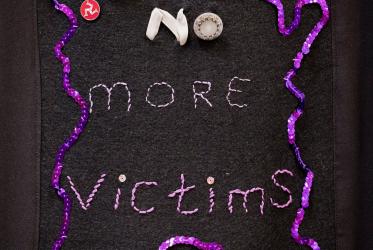Displaying 1 - 20 of 1163
Voice of churches vital during UN women’s rights talks
28 March 2024
On International Women’s Day, “we want us alive”
13 March 2024
On International Women’s Day, find ways to end femicide
29 February 2024
Que peuvent faire les Églises pour prévenir l’esclavage moderne?
26 February 2024
¿Qué pueden hacer las iglesias para prevenir la esclavitud moderna?
26 February 2024
Was können Kirchen unternehmen, um moderne Sklaverei zu verhindern?
26 February 2024
What can churches do to prevent modern slavery?
22 February 2024










